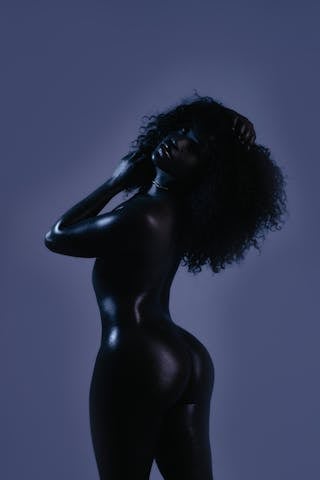The Marvel Cinematic Universe has been making waves with its recent release of Captain Marvel, the first film in the franchise to feature a female superhero as the lead. Directed by Anna Boden and Ryan Fleck, the film has been praised for its empowering portrayal of Carol Danvers, also known as Captain Marvel, as a strong and independent character. However, one aspect of the character that has sparked a lot of discussion is her sexuality.
With the release of Captain Marvel, fans have been eager to explore the personal life of the superhero. Directors have provided some fascinating insights into her love life, shedding light on the complexities of her relationships. If you're curious to learn more about the romantic side of Captain Marvel, check out this intriguing article uncovering her love life.
Exploring Carol Danvers' Sexuality
If you're looking to connect with married women for chat and companionship, you should definitely try out this platform.
In the comics, Carol Danvers is portrayed as a heterosexual character. However, there has been speculation among fans about her sexual orientation, especially after the release of the film. Some have argued that there are hints of queerness in the character's interactions with other female characters, while others believe that her relationship with her best friend Maria Rambeau has romantic undertones.
Explore the world of BDSM medical play and embark on a kinky journey into sensual healing by trying it out at Cuckold Dating Sites.
In a recent interview, Captain Marvel co-director Anna Boden addressed the topic of Carol Danvers' sexuality, stating that they wanted to leave it open to interpretation. She emphasized that the film is ultimately about self-discovery and empowerment, and that they wanted to focus on Carol's journey as a superhero rather than her romantic relationships.
Discover the exciting world of mature dating in Plano!
This approach has received mixed reactions from fans, with some appreciating the ambiguity and the opportunity for diverse interpretations, while others have expressed disappointment at the lack of explicit representation. Regardless of where one stands on the issue, it's clear that the character of Carol Danvers holds a special place in the hearts of many, and her portrayal in the film has sparked important conversations about LGBTQ+ representation in superhero media.
The Importance of LGBTQ+ Representation
The discussion about Carol Danvers' sexuality brings to light the significance of LGBTQ+ representation in popular media. For many individuals, seeing characters who reflect their own experiences and identities on screen can be incredibly validating and empowering. It sends a message that their stories are valid and worthy of being told, and it helps to break down stereotypes and stigmas surrounding LGBTQ+ individuals.
In recent years, there has been a growing demand for more diverse and inclusive representation in superhero films and other forms of entertainment. The success of films like Black Panther and Wonder Woman has shown that audiences are eager to see a wider range of perspectives and experiences on screen, and that there is a real appetite for stories that reflect the diversity of our world.
The Future of LGBTQ+ Representation in Superhero Films
As the Marvel Cinematic Universe continues to expand and evolve, there is hope that we will see more explicit representation of LGBTQ+ characters in future films. With the upcoming release of The Eternals, which is set to feature the first openly gay superhero in the MCU, there are signs that the studio is taking steps towards greater inclusivity.
The character of Phastos, played by Brian Tyree Henry, will be the first openly gay superhero in the MCU, marking a significant milestone in the franchise's history. This move has been met with excitement and anticipation from fans, who are eager to see more diverse and authentic representations of LGBTQ+ individuals in superhero media.
It's clear that there is a growing awareness of the importance of LGBTQ+ representation in popular culture, and that audiences are demanding more inclusive and diverse storytelling. As the superhero genre continues to dominate the box office, there is a real opportunity for these films to make a positive impact by showcasing a wide range of characters and experiences.
In conclusion, the discussion about Carol Danvers' sexuality in Captain Marvel has sparked important conversations about LGBTQ+ representation in superhero media. While the film's co-directors have chosen to leave her sexuality open to interpretation, there is hope that future films in the Marvel Cinematic Universe will feature more explicit and diverse representations of LGBTQ+ characters. As audiences continue to demand more inclusive and authentic storytelling, it's clear that the future of superhero films holds great potential for meaningful and impactful LGBTQ+ representation.
- https://best-casual-dating-platform.datingapps.shop/posts/woman-on-top-how-to-ride-dick-sex-position-tips/
- https://local-encounters-website.niklasbelenius.com/posts/my-best-sex-ever-was-with-my-childhood-crush/
- https://dating-guide.timebombrecordings.com/posts/sexpositive-5-women-and-nonbinary-people-on-what-it-means/
- https://best-hookup-app.patternismovement.com/posts/12-of-the-best-sex-machines-to-experiment-with/
- https://online-local-dating-website.datingapps.shop/posts/is-feeld-now-a-mainstream-dating-app/
- https://best-casual-encounters-app.sonya-renee.com/posts/erotic-lingerie-lingerie-sex-wear/
- https://online-discreet-dating-site.sonya-renee.com/posts/if-being-bisexual-was-actually-a-choice/
- https://best-meetup-website.gatective.com/posts/zombieing-what-is-the-zombieing-dating-trend/
- https://top-casual-hookup-sites.prettygirlsmakegraves.com/posts/discreet-vibrator-best-discreet-sex-toys/
- https://dating-website.fu-direct.net/posts/anal-sex-positions-youre-going-to-want-to-try/
- https://best-dating-platform.cactusclubsj.com/posts/5-essential-sex-positions-you-can-do-without-leaving-the-sofa/
- https://best-hookup-apps.prettygirlsmakegraves.com/posts/i-didnt-know-abusive-samesex-relationships-existed-until-i-was-in-one/
- https://hookupsites.getweps.com/posts/strapless-dildo-advice-and-the-best-sex-toys/
- https://top-local-encounters-websites.wsmchicago.com/posts/body-safe-sex-toys-10-of-the-best-bodysafe-sex-toys/
